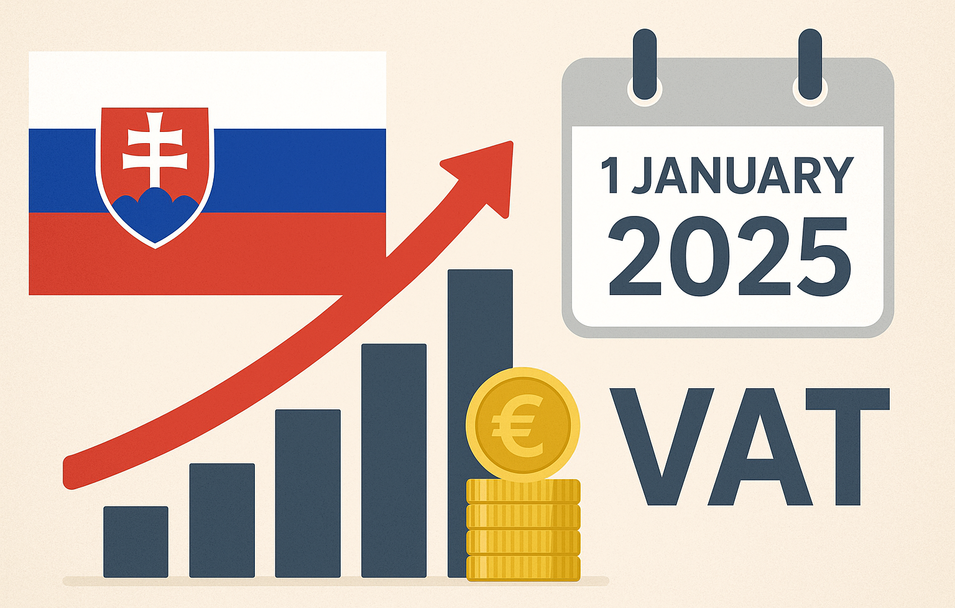
Starting from January 2025, substantial changes to the value-added tax (VAT) system came into effect in Slovakia. The government’s decision in Bratislava is aimed at improving public finances and reducing the budget deficit, yet the consequences will be felt not only by domestic businesses but also by foreign companies operating in this market.
Higher standard rate
The most notable change is the increase of the standard VAT rate from 20 to 23 percent. This applies to the vast majority of goods and services, directly leading to higher transaction costs and potentially increased retail prices.
Changes in reduced rates
The previous 10 percent rate was abolished and replaced with a new 19 percent rate. It applies, among others, to food products (other than basic staples), electricity, and non-alcoholic beverages served in restaurants. This change may particularly affect the hospitality industry and the retail sector.
Expanded list of goods and services at 5 percent
The reduced 5 percent rate has been maintained and extended to cover new categories. It now applies not only to basic foodstuffs, medicines, books, and periodicals, but also to hotel services, restaurant meals, fitness, sporting events, and certain forms of housing support.
Impact on businesses
The tax system changes require businesses to adjust their pricing policies, update price lists, and modify accounting systems.
For foreign companies cooperating with Slovak partners, the new rules pose additional challenges. In many cases, registration for VAT in Slovakia will be necessary, as well as adjusting settlement procedures to meet the new requirements.
Particular attention should be given to transactions covering the transitional period, where the applicable VAT rate depends on the date the tax liability arises.
Economic implications
The VAT increase is primarily fiscal in nature – its aim is to raise state budget revenues and reduce the public finance deficit. In the short term, this means a heavier burden on consumers and businesses, while in the longer term, the authorities in Bratislava expect the measure to stabilize the country’s financial situation.
Monitoring of Institutional Changes in the CEE: Report for Investors
Аnalytical research
Post-war Reconstruction of Ukraine: Expectations, Plans, and Strategies of International Partners
Аnalytical research
Industry Development Trends and Forecast in CEE: Research Report
Аnalytical research